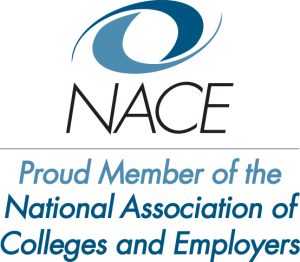It’s not me, it’s you. Campus Relations and Your Career Center.
Not too long ago, I was reading one of my favorite career advice columns when I noticed a conversation happening in the comment section about the uselessness of college career centers. Of course, as a former career education professional, I was offended! But it did make me think: Why do career centers get such a bad rap, and what can be done about it?
This is certainly not the first time I’ve heard people complain about their college career centers. I think we’ve all heard from friends, alumni, and others about bad experiences had–and we may even have our own horror stories. So what can career professionals do to ensure they’re providing a valuable experience to students and not contributing to the general bad reputation that seems to persist in the zeitgeist?
It’s not all about the resume.
First and foremost, we have to reframe the purpose of college career centers. I don’t know how many times I would be sitting in my career center office and hear a student admissions tour guide outside my door say something along the lines of, “This is where you can come to get resume advice or write a cover letter.” I would immediately cringe–and often walk out to introduce myself and give a little more context.
College career centers should not be known for resumes and cover letters.
Yes, these are important things to support. But they’re not the career center’s reason for being. Setting career center professionals up as “resume experts” is a recipe for disaster. Resumes and cover letters can vary widely by industry, and even personal preference comes into the mix to a great degree. While one hiring manager may love bullet points in a cover letter, another may hate them. Some may love seeing highly designed resumes, while others find them distracting and gimmicky.
There’s certainly some basic advice that can be given across the board when it comes to crafting resumes and cover letters, and it’s important for career centers to be able to provide that information. But college career centers, especially if they are centralized, should not be trying to step into the place of “Resume Expert.” Instead, they should be pointing students to networking and mentoring opportunities in their industries of interest. Those are the people who can give specifics on what employers in their fields are looking for in job applicants.
The college career center should be about purpose.
There are many different theories and schools of thought on the process of career development. The National Career Development Association, for example, notes that there are six stages we move through: Assessment, Investigation, Preparation, Commitment, Retention, and Transition. Other versions include stages such as Self-Knowledge, Exploration, Decision-Making, and Action. But no matter which theory you ascribe to, the underlying point of career development is to help people find purpose in their work.
This is what college career centers, especially, need to focus on. Not on the trappings of the job search–resumes, cover letters, interviews. Those are the tools we use to land a job, but they have little to do with actual career development. Knowing how to put together a resume doesn’t guarantee that you know what purpose you’re actually working towards in your life.
…the value of today's education is best redeemed by our learners when they graduate to make a positive impact in the world while living with meaning and purpose. Shouldn't we want every learner to consider their options for a destination when choosing a college, picking a major, passing their courses
Yes, it’s important for college students to have support in learning to use the tools of the job search. But those tools change over time and across industries, so the more important task for career centers is to teach students how to identify their purpose and goals, how to network, and how to create actionable plans for achieving their career dreams. This is the foundation for a successful career, and, when done well, will make resume, cover letter, and interview preparation much easier.
Reframe the conversation to improve campus relations
When career centers set their sights on assisting students in finding career purpose, they broaden their appeal to both students and faculty across campus. The job search itself is one small part of the education career centers provide–but because its success or failure comes with high stakes, it’s by far the most visible part of the career center to outside constituents. This is all the more reason for career centers to emphasize their role in career education at all stages. Introducing resources like PathwayU early and often can help both students and faculty understand the full range of support the career center can offer and shift the focus from job search to career purpose.
A career center has value in every step of an education journey
Most of us would agree, the value of today's education is best redeemed by our learners when they graduate and go forth into their vocational field to make a positive impact in the world while living with meaning and purpose. Shouldn't we want every learner to consider their options for an employment destination when choosing a college, picking a major, passing their courses and finding employment?
If yes, it sounds to me as if today's modern career services can deliver an institutional impact and increase recruiting numbers, retain and engage students to ultimate success and prepare them to not only find that job but also become life long learners. That's a bit more than just helping a student with a resume.
By Jen Gose
Jen Gose is a former higher ed administrator
-1.png?width=288&height=67&name=PathwayU_PGLogo%20(1)-1.png)










